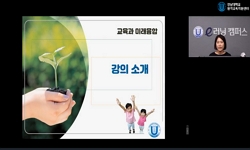가계부채 문제와 한국 경제의 저성장사회 돌입으로 인해 가계의 한정적인 자원을 효율적으로 사용할 수 있는 재무관리역량의 중요성이 점차 높아지고 있다. 이에 따라, 본 연구에서는 20~60...
http://chineseinput.net/에서 pinyin(병음)방식으로 중국어를 변환할 수 있습니다.
변환된 중국어를 복사하여 사용하시면 됩니다.
- 中文 을 입력하시려면 zhongwen을 입력하시고 space를누르시면됩니다.
- 北京 을 입력하시려면 beijing을 입력하시고 space를 누르시면 됩니다.

재무적 자기효능감과 금융교육 및 금융거래 경험이 재무관리역량에 미치는 영향 연구 = An Empirical Study on the Impact of Financial Self-Efficacy, Financial Education, and Financial Transaction Experience on Financial Management Capability
한글로보기https://www.riss.kr/link?id=A109785974
- 저자
- 발행기관
- 학술지명
- 권호사항
-
발행연도
2025
-
작성언어
Korean
- 주제어
-
등재정보
KCI등재
-
자료형태
학술저널
-
수록면
137-155(19쪽)
- 제공처
-
0
상세조회 -
0
다운로드
부가정보
국문 초록 (Abstract)
가계부채 문제와 한국 경제의 저성장사회 돌입으로 인해 가계의 한정적인 자원을 효율적으로 사용할 수 있는 재무관리역량의 중요성이 점차 높아지고 있다. 이에 따라, 본 연구에서는 20~60대 성인 400명을 설문조사 하여, 재무관리역량에 있어 재무적 자기효능감과 금융거래 경험, 금융교육 경험이 어떠한 영향을 미치며 그 상대적 크기는 어느정도인지 확인하였다. 그 결과 최근 3년 이내에 금융교육을 받은 경험이 있는 금융소비자의 비율은 20.8%에 불과했으며, 교육을 경험한 영역은 대체로 저축과 투자(61.4%), 연금과 은퇴설계(50.6%), 현금관리와 재무상태(50.6%) 영역으로 나타났으며 향후 교육을 소구하는 분야도 동일하게 저축과 투자, 현금관리와 재무상태, 연금과 은퇴설계로나타났다. 다음으로, 금융소비자는 대체로 예적금 상품을 기본으로 하여 2가지나 3가지 업권에서 금융거래를 하고 있었으며, 예적금/대출/투자/보험 영역 전반을 활용하고 있는 비율은 13.8%였다. 셋째, 금융거래 영역이 다양할수록재무관리역량 및 역량의 하위 요인 수준이 높았다. 금융교육 경험이 있는 집단이 재무관리기능 수준이 높았으나, 재무관리태도와 재무관리기능 수준은 낮은 것으로 나타났다. 넷째, 재무적 자기효능감과 금융거래 경험은 재무관리역량및 하위요인에 정적인 영향을 미치고 있었으나, 교육경험의 경우 재무관리역량과 태도 및 지식에 부적인 영향을 미치는 요인으로 나타났다. 이에 따라, 금융교육 측면에 있어 단순한 정보전달 보다는 Learning-by-Doing 형태의교육이 이루어져야 하고, 1회성 교육보다는 재무코칭이나 재무상담이 연속성 있게 제공되어야 하며, 성장성 만큼이나외적 충격에 대비한 역량을 갖출 수 있도록 금융교육 시 대출 및 신용이나 위험 및 보험 영역을 포함하여야 재무관리역량을 더 효율적으로 높일 수 있을 것으로 기대된다.
다국어 초록 (Multilingual Abstract)
Only 20.8% had received financial education in the past three years, mainly on savings/ investment, retirement planning, and cash flow management—topics also preferred for future learning. Most respondents used two to three financial services, mainly savings and deposits, while just 13.8% had experience across all four areas: savings, loans, investment, and insurance.
Findings revealed that broader financial transaction experience and higher financial self- efficacy were positively linked to financial management capability and its subdomains. In contrast, financial education experience was associated with lower financial attitudes and capability.
These results highlight the need to shift financial education toward practical, experience- based approaches such as ongoing coaching or counseling. Expanding content to include credit, loans, and insurance can better equip consumers to manage risks and enhance their financial capability.
With the growing household debt crisis and Korea’s transition into a low-growth economy, the importance of financial management capability—the ability to efficiently allocate limited household resources—is increasingly emphasized. This study sur...
With the growing household debt crisis and Korea’s transition into a low-growth economy, the importance of financial management capability—the ability to efficiently allocate limited household resources—is increasingly emphasized. This study surveyed 400 adults aged 20 to 60 to examine the effects and relative influence of financial self-efficacy, the number of financial transaction areas, and financial education experience on financial management capability.
Only 20.8% had received financial education in the past three years, mainly on savings/ investment, retirement planning, and cash flow management—topics also preferred for future learning. Most respondents used two to three financial services, mainly savings and deposits, while just 13.8% had experience across all four areas: savings, loans, investment, and insurance.
Findings revealed that broader financial transaction experience and higher financial self- efficacy were positively linked to financial management capability and its subdomains. In contrast, financial education experience was associated with lower financial attitudes and capability.
These results highlight the need to shift financial education toward practical, experience- based approaches such as ongoing coaching or counseling. Expanding content to include credit, loans, and insurance can better equip consumers to manage risks and enhance their financial capability.
동일학술지(권/호) 다른 논문
-
지속가능한 협력적 소비를 위하여: 경외감의 영향과 청지기정신의 매개효과를 중심으로
- 한국소비자학회
- 박현아
- 2025
- KCI등재
-
자기해석과 소비맥락이 PWYW 하의 공공전시에서 지각된 가치 및 지불의사금액에 미치는 영향
- 한국소비자학회
- 박소하
- 2025
- KCI등재
-
고령층 소비자의 디지털 금융서비스 적응과정에 대한 연구: 모바일 금융앱 이용을 중심으로
- 한국소비자학회
- 차경욱
- 2025
- KCI등재
-
소비자의 마이데이터 서비스 이용의도 영향요인 연구 - 행동추론이론을 중심으로 -
- 한국소비자학회
- 이현경
- 2025
- KCI등재




 KCI
KCI KISS
KISS


